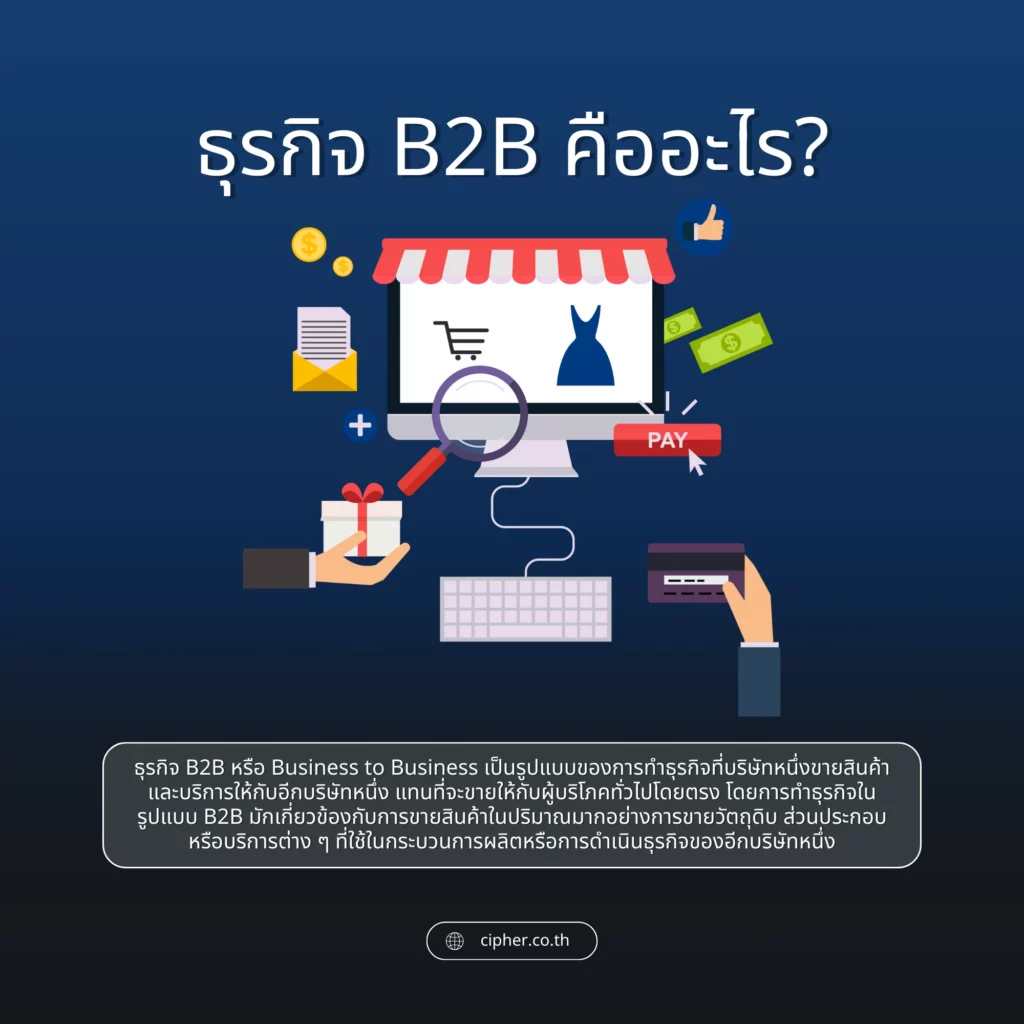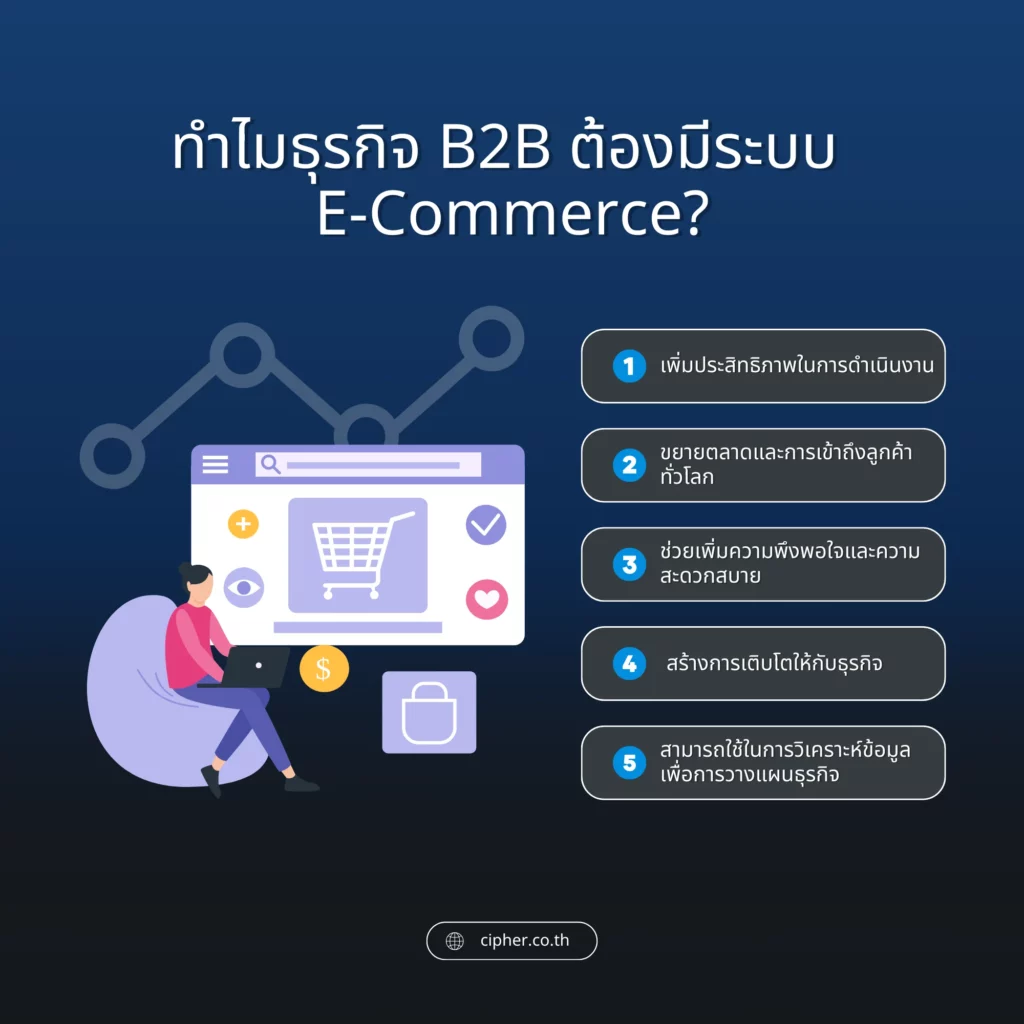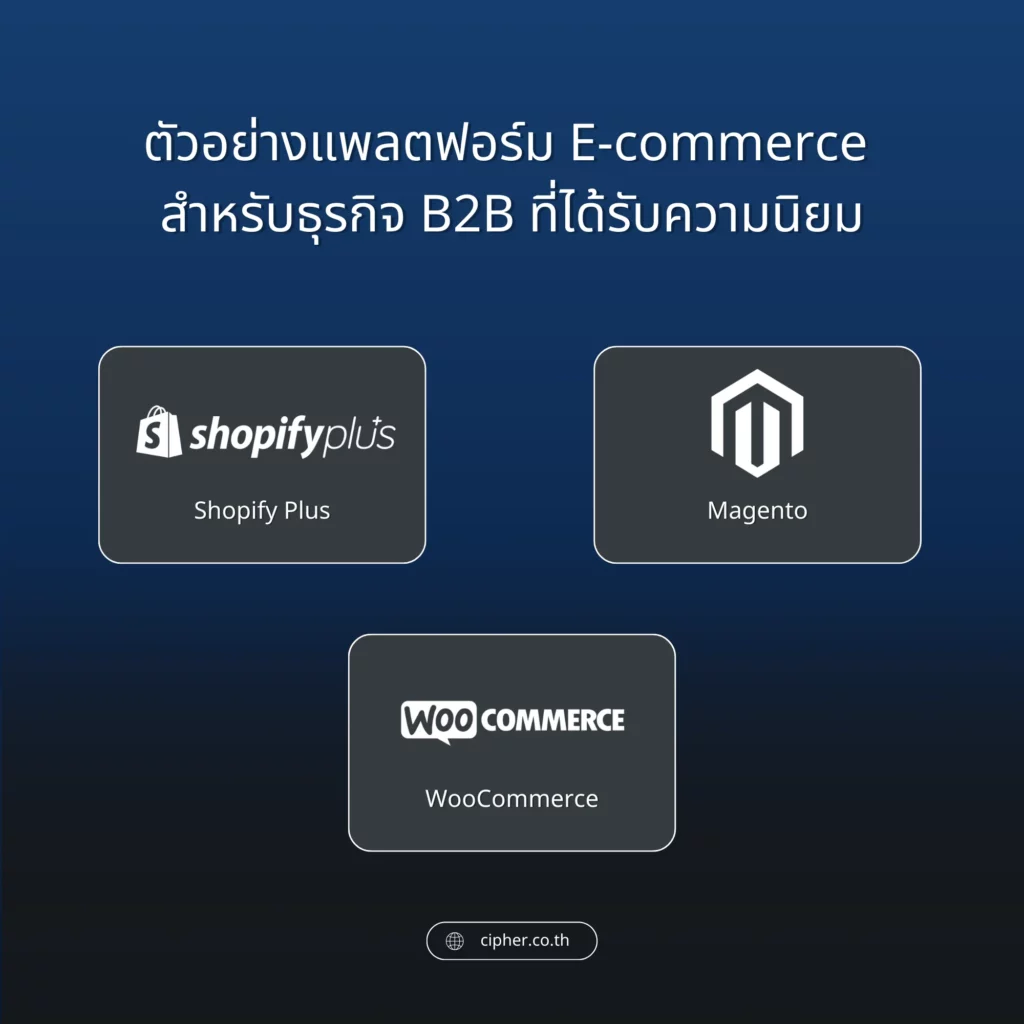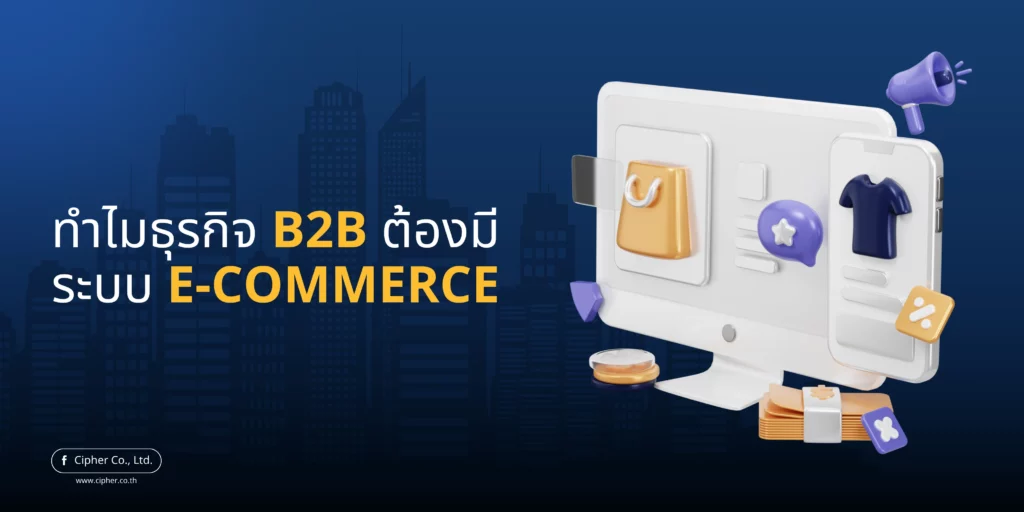Table of Contents
Why do B2B businesses need E-Commerce for their business growth?
Ever wonder? Why does a B2B business need an e-commerce system? The answer may be the use of technology to help business operations. Especially, B2B requires e-commerce. E-commerce is not only a sales channel but also a tool to help B2B manage every step of the way, from product delivery to after-sales service through a single system, and expand its customer base. That will help businesses grow as well.
Business B2B is. What?

B2B or Business to Business is a type of business in which one company sells goods and services to another instead of directly to the general consumer. Unlike B2C, B2B often involves selling large amounts of goods such as raw materials, components or services used in another company’s manufacturing or business operations.
Examples of B2B businesses include companies that manufacture electronic components and sell them to ready-made factories, software companies that provide enterprise resource planning (ERP) services for enterprise resource management, or companies that provide transportation or logistics services for businesses. B2B businesses often focus on building long-term business relationships. At the same time, reliability and the delivery of quality products and services to support the operations of business partners.
Why does a B2B business need an e-commerce system?
B2B business needs to be adjusted to keep pace with market changes and one of the key tools that B2B businesses should not miss is the “E-Commerce system” that will help your business grow and compete with competitors. E-Commerce is essential for B2B business as follows:

1. The E-Commerce system enhances the operational efficiency of B2B businesses.
One of the key reasons why B2B should have E-Commerce is to increase productivity. Using the E-Commerce platform, companies or organizations can simplify complex processes and reduce errors, enabling customers to choose products and services directly from their web pages. Reduce reliance on traditional self-paced sales teams, allowing customers to instantly select and order products through the platform without waiting for a response from their cells and focus on better customer service, such as technical support and after-sales service.
2. The E-Commerce system can expand its market and reach customers worldwide.
E-Commerce enables B2B businesses to expand their markets to other countries. It is an online platform that enables companies to offer products and services 24 hours a day around the world, attracting new customers and expanding their sales to international markets. without travelling or handling orders through complex documents.
3. The E-Commerce system enhances customer satisfaction and convenience.
E-Commerce-based B2B businesses can provide customers with a better experience. Access to up-to-date product information, pricing and delivery details allows them to make faster decisions, making their purchase decisions easier. In addition, customers can easily track their order status via E-Commerce. Simplify data management and trading processes.
4. E-Commerce systems can provide growth for B2B businesses.
E-Commerce is a tool that enables B2B businesses to flexibly adapt to market conditions and changes in technology and customer requirements. E-Commerce can support business growth and order management. This enables the company to grow stably and efficiently.
5. E-Commerce systems can be used to analyze data for business planning.
E-Commerce provides critical data collection tools and integration with other tools, such as HubSpot, to collect customer data such as data on buying behavior or popular products. This data enables companies to plan future sales strategies and manage inventory based on future needs and expectations. This information enables B2B businesses to efficiently plan for marketing and inventory management. Using accurate information will help companies improve products and services to meet customer needs.
Examples of popular B2B business e-commerce platforms

- Shopify Plus: The Shopify Implementation Service is ideal for businesses of all sizes, especially large businesses that require flexibility, customization and features, so Shopify Plus is a cost-effective platform for future growth.
- Magento: Ideal for businesses with large volumes of products and requiring complex inventory management systems.
- BigCommerce: It is ideal for businesses that want to expand their businesses to overseas markets.
- WooCommerce: is a popular WordPress plug-in for small and medium businesses.
Conclusion
E-Commerce is not just an option but an imperative for today’s B2B businesses as it improves operational efficiency, expands market and meets the needs of digital customers. Businesses that adapt and apply this technology will have the opportunity to grow and compete with competitors. E-Commerce for B2B businesses is now available for professional consultation and advice!





